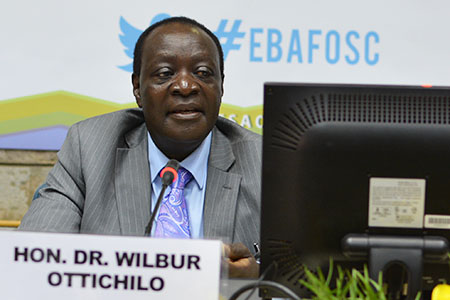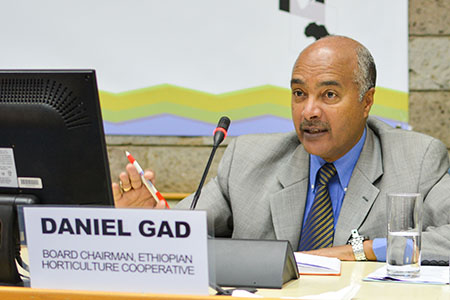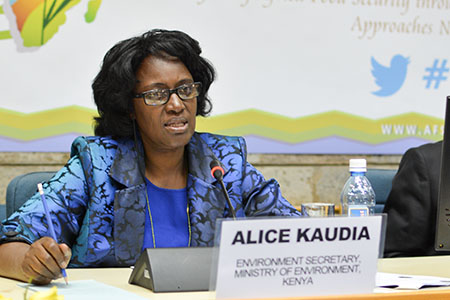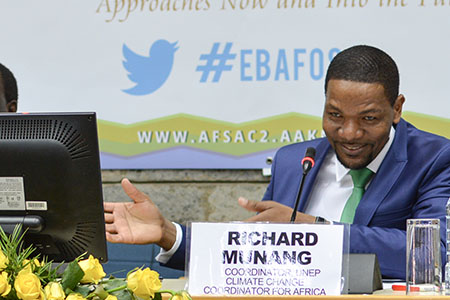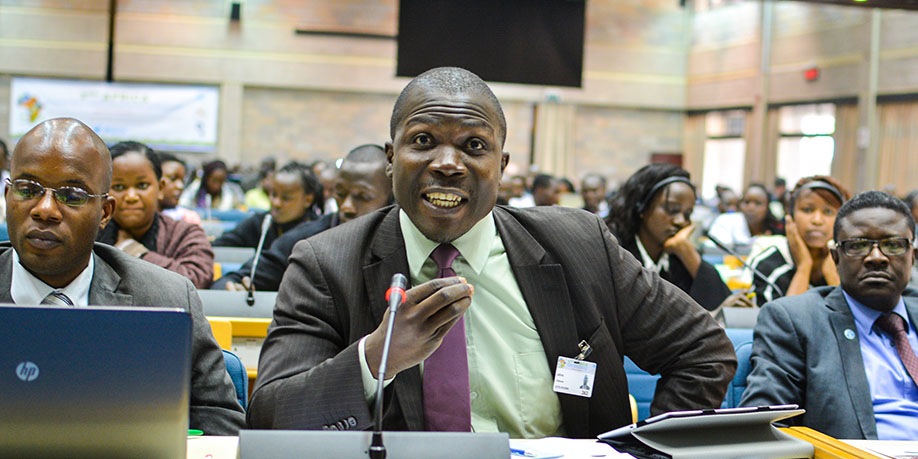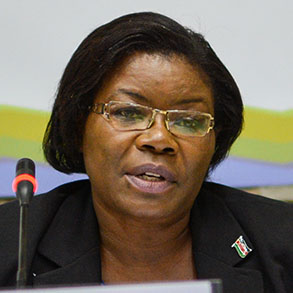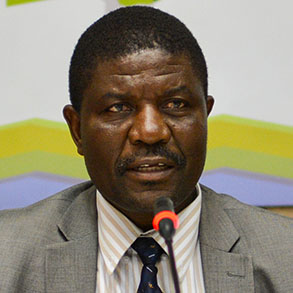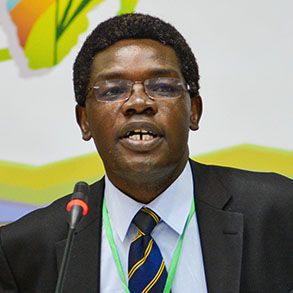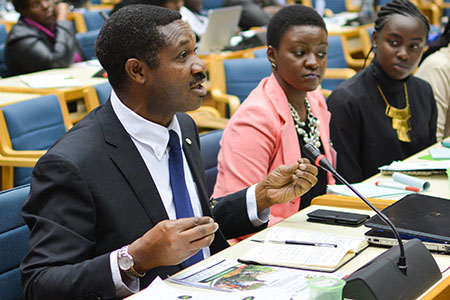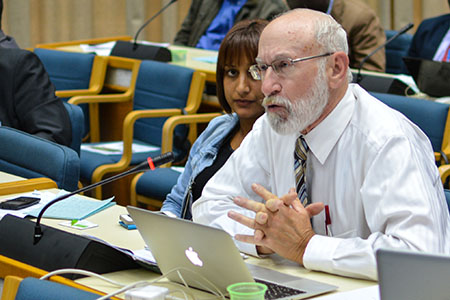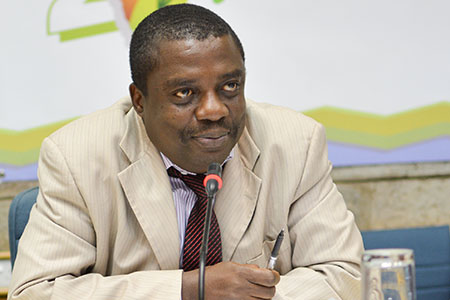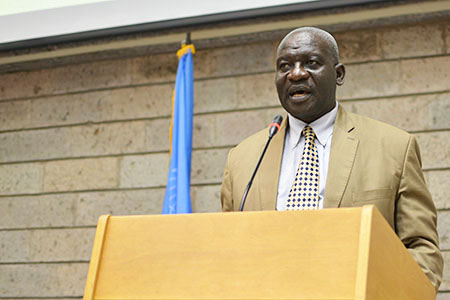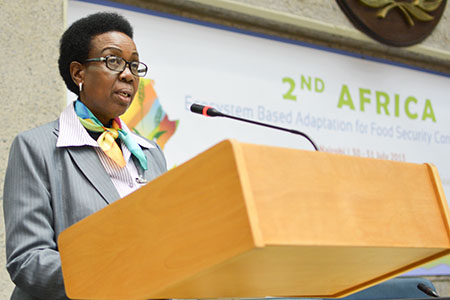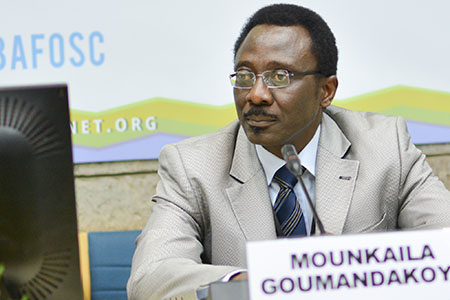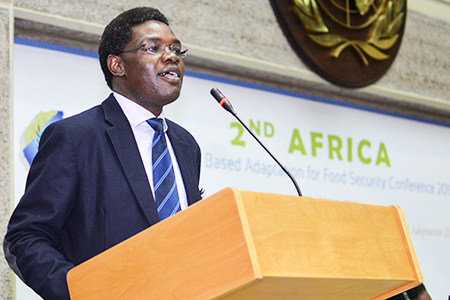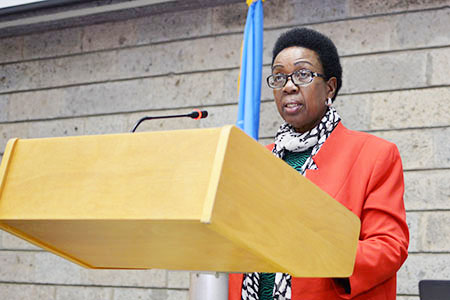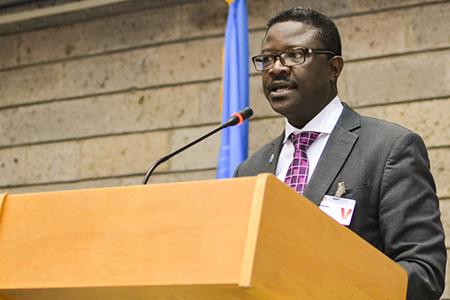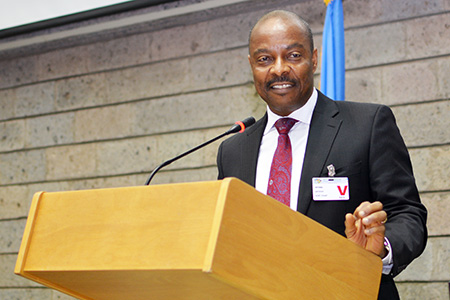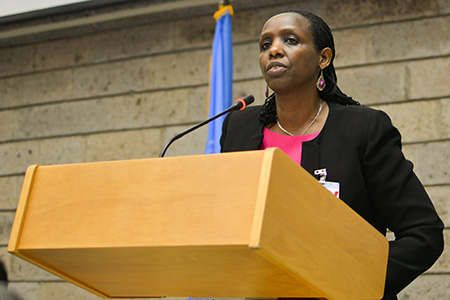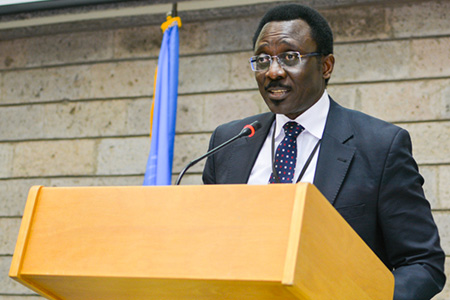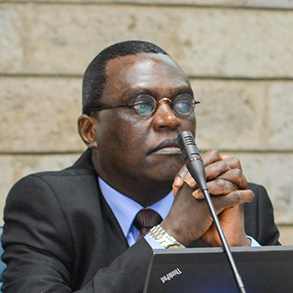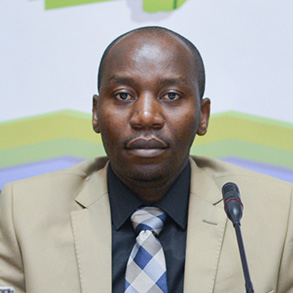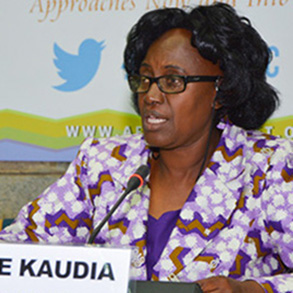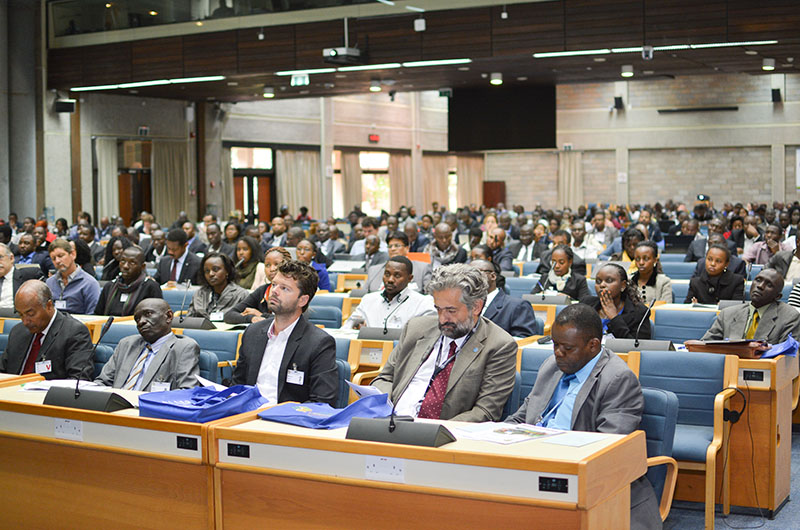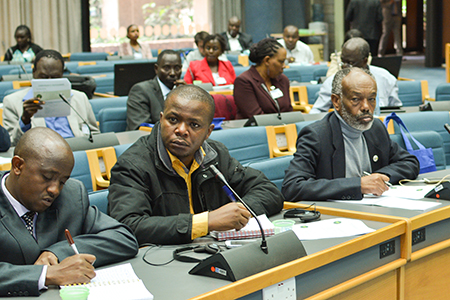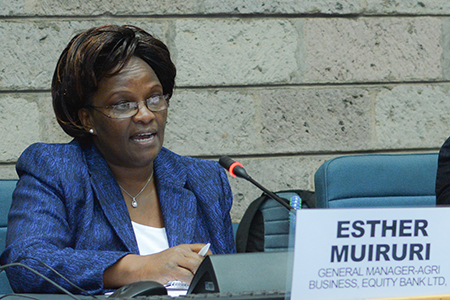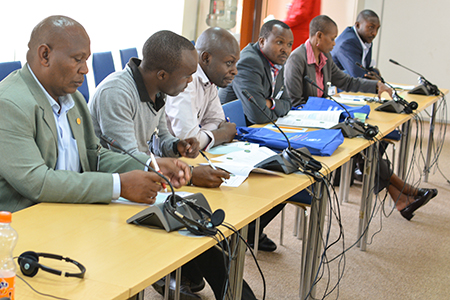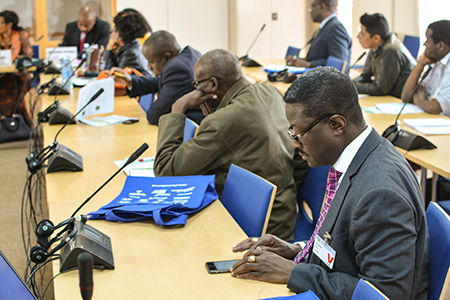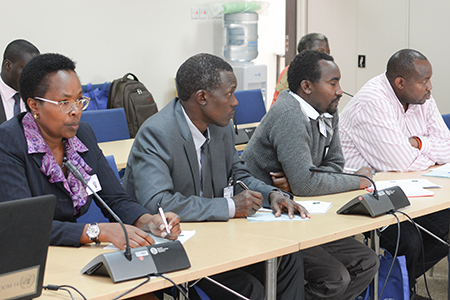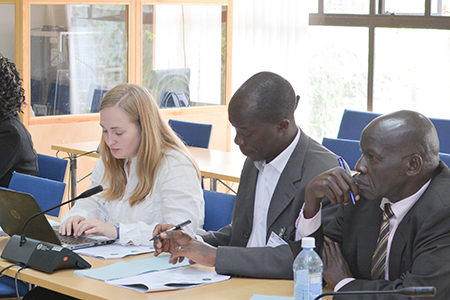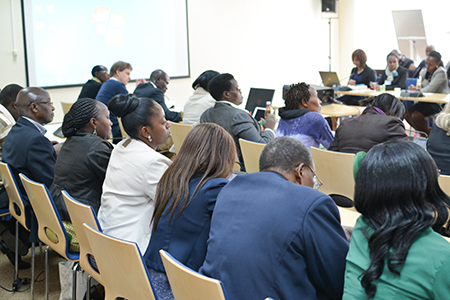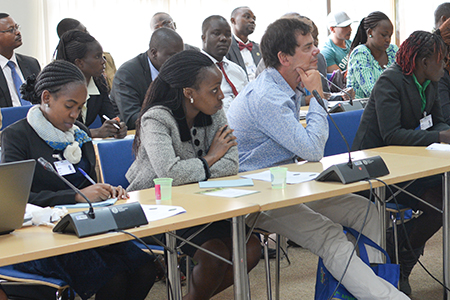2nd Africa Ecosystem Based Adaptation for Food Security Conference 2015 (EBAFOSC 2)
30-31 July 2015 | UN Environment Programme (UNEP) headquarters, Nairobi, Kenya
Summary Highlights of EBAFOSC 2
Download ENB+ Meeting Report |
||||||
Receive our ENB+ bulletins and reports by email: |
||||||

| Follow @IISDRS | ||

Loading... |
||
|
Receive emailed updates with the news articles above plus related information and announcements from our NATURAL RESOURCES community mailing lists: |
||

|
||
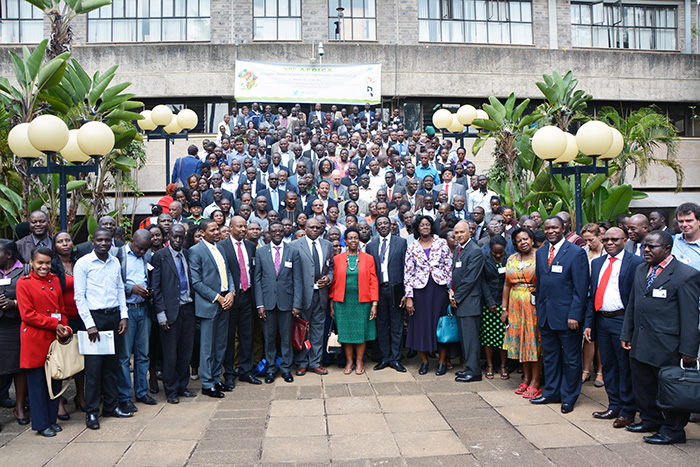
Delegates to the 2nd Africa Ecosystem Based Adaptation for Food Security Conference 2015 (EBAFOSC 2) pose for a group photo. |
||
The 2nd Africa Ecosystem Based Adaptation for Food Security Conference (EBAFOSC 2) took place from 30-31 July 2015 at UN Environment Programme (UNEP) Headquarters in Nairobi, Kenya, under the theme ‘Re-imagining Africa’s Food Security through Harnessing Ecosystem Based Adaptation Approaches Now and Into the Future under Climate Change.’ More than 1200 delegates from governments, research and policy institutions, civil society, the private sector and youth organizations attended the event, which was convened by the UNEP Regional Office for Africa (UNEP/ROA) and partner organizations. The Conference was structured around plenary and parallel discussion sessions that aimed to contribute to seven core objectives: harnessing ecosystem-based adaptation (EBA) to protect and restore Africa’s ecosystems and contribute to a sustainable overall agricultural policy framework; building scalable and inclusive business models for EBA-driven agriculture that can create opportunities across the entire agricultural value chain; identifying scalable and innovative financing models for EBA-driven agriculture to stimulate growth, job creation and value chain partnerships in Africa; understanding the benefits of EBA in achieving the proposed Sustainable Development Goals (SDGs); identifying enabling policies and legislation that will incentivize countries to invest in agriculture, soil conservation and EBA; gaining knowledge on key agents that can help transform the dominant agricultural development paradigms towards EBA-driven agriculture in Africa; and developing strategies to incentivize private sector involvement in EBA-driven agriculture for increased capital mobilization and competitiveness. EBAFOSC 2 produced two main outcome documents: ‘The Nairobi Action Agenda on Africa’s Ecosystem Based Adaptation for Food Security’; and a Constitution establishing a new pan-African institution, the Ecosystem Based Adaptation for Food Security Assembly (EBAFOSA). Following closing remarks by Rhoda Peace Tumusiime, Commissioner for Rural Economy and Agriculture, African Union Commission (AUC), Conference Chair Alice Kaudia, Environment Secretary, Ministry of Environment, Kenya, declared EBAFOSC 2 closed at 3:15 pm on Friday 31 July. |
||
+ IISD Reporting Services, through its ENB+ Meeting Coverage, provided a summary of the EBAFOSC 2 in HTML and PDF format. |
||
Highlights for Friday, 31 July 2015
On Friday, EBAFOSC 2 delegates met in plenary discussions throughout the day to explore policy issues related to scaling up EBA-driven agriculture on the continent, as well as practical recommendations for the way forward. The first plenary session, on ‘Making EBA work in Africa through maximizing policy frameworks,’ explored, among other issues: why current policies are not working for EBA-driven agriculture; how to mainstream EBA concepts within existing regional policy frameworks and political processes; new forms of public and private investment that can support the transformation of Africa’s agricultural paradigm; and how to generate resources for knowledge generation, dissemination and capacity building. In the second plenary session, titled ‘Way forward – plans and strategies for implementing and scaling up EBA approaches and agro-value chains to ensure food security, ecosystem productivity, climate resilience and income generation,’ delegates exchanged views on, among other issues: the roles of different stakeholders in implementing and monitoring the progress of EBA-driven agriculture at the local, national and regional levels; and how to foster collaboration and increased synergies among the various levels. During the closing session in the afternoon, participants adopted ‘The Nairobi Action Agenda on Africa’s Ecosystem Based Adaptation for Food Security’ as well as, the Constitution establishing a new pan-African institution, the Ecosystem Based Adaptation for Food Security Assembly (EBAFOSA). Following closing remarks by Rhoda Peace Tumusiime, Commissioner for Rural Economy and Agriculture, AUC, Conference Chair Alice Kaudia, Environment Secretary, Ministry of Environment, Kenya, declared EBAFOSC 2 closed at 3:15 pm. |
||
+ IISD Reporting Services, through its ENB+ Meeting Coverage, provided a summary the of EBAFOSC 2 in HTML and PDF format. |
||
|
|
|
|
|
|
|
|
|
|
Presentation of Recommendations and “Next Steps”
|
|
|
|
Highlights for Friday, 30 July 2015
The 2nd Ecosystem Based Adaptation for Food Security Conference (EBAFOSC 2) opened on Thursday 30 July 2015 at the UN Environment Programme (UNEP) Headquarters in Nairobi, on the theme ‘Re-imagining Africa’s Food Security through Harnessing Ecosystem Based Adaptation Approaches Now and Into the Future under Climate Change. |
||
+ IISD Reporting Services, through its ENB+ Meeting Coverage, provided a summary the of EBAFOSC 2 in HTML and PDF format. |
||
High Level Opening Session
|
|
|
|
|
|
|
|
|
|
|
Discussion Session 1.1: The Role of Youth and Women in EBA-driven Agriculture
|
Discussion Session 1.2: Financing EBA in Africa - Innovative Financing Models for EBA-driven Agriculture
|
|
Discussion Session 1.3: Education, ICT, Data and its Role in Transforming EBA-driven Agriculture in Africa
|
Discussion Session 1.4: The Role of the Private Sector in Upscaling EBA-driven Agriculture
|
|
|
Discussion Session 1.5: The role of South-South Cooperation in Harnessing EBA for Food Security in Africa
|
Discussion Session 1.6: Innovations to Reduce Post-Harvest Losses and Wastage - The Role of EBA
|
|
|
Discussion Session 1.7: Climate Change and Resilience Through EBA
|
|
|
Around the Venue
|





